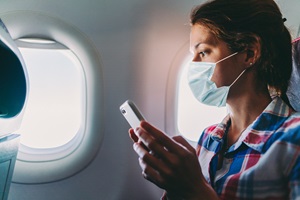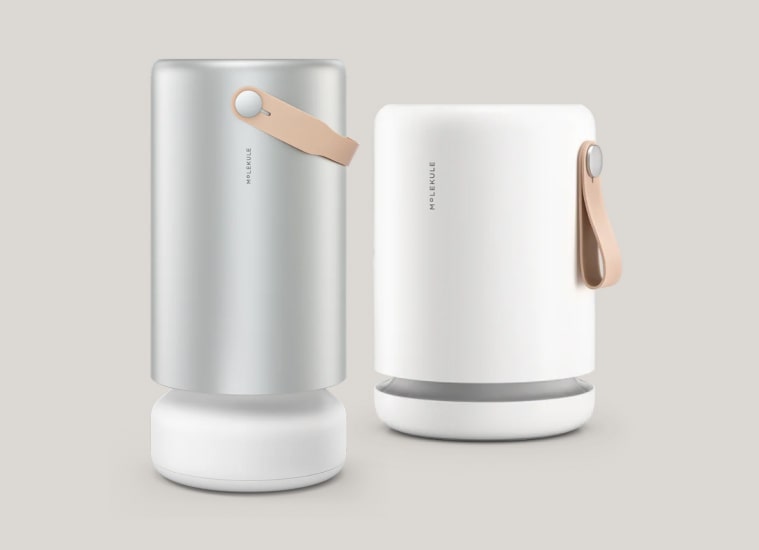How to Manage Allergies and Asthma While Traveling: Tips for Staying Symptom-Free

Traveling is exciting, but for those with allergies or asthma, it can also be a source of stress. Changes in environment, exposure to new allergens, and different climates can all trigger allergy and asthma symptoms. Whether you’re heading to a new city, going on vacation, or traveling for work, the key to a successful trip is preparation. In this blog post, we’ll explore how to manage allergies and asthma while traveling, offering practical tips and expert advice to ensure that your trip is as comfortable and symptom-free as possible.
1. Plan Ahead for Allergy and Asthma Management
Before you even pack your suitcase, it’s important to plan to make sure you have everything you need to manage your symptoms during your travels. Here are some steps to take:
- Consult with Your Doctor: If you’re traveling long-distance or internationally, consider visiting your allergist or pulmonologist before you go. They can recommend the right medications or treatments, offer advice about any health risks in your destination, and provide a written plan for managing your symptoms while away.
- Pack Allergy and Asthma Medications: Make sure you have an ample supply of your medications, including inhalers, antihistamines, nasal sprays, or any other prescriptions you may need. Pack them in your carry-on bag so they’re easily accessible in case of an emergency. Always carry a doctor’s note or prescription in case you need to show it at security checkpoints, especially for international travel.
- Get Travel Insurance: If you have a chronic allergy or asthma condition, consider getting travel insurance that covers medical expenses in case of an emergency. It’s always best to be prepared for any unforeseen health issues while traveling.
2. Know Your Travel Destination’s Allergen Profile
Each location has its own set of allergens, and knowing what to expect can help you prepare for potential triggers. Research the allergens that are common in the area you’re visiting, including:
- Pollen: If you’re traveling during peak pollen seasons, check local pollen counts before your trip. Pollen levels tend to be highest in the early mornings and evenings, so plan your outdoor activities accordingly.
- Air Quality: Some cities have poor air quality, particularly during certain times of the year, which can worsen asthma symptoms. Check the Air Quality Index (AQI) for your destination before and during your trip, and consider limiting outdoor activities on days when pollution levels are high.
- Climate and Weather: The climate can affect your allergies and asthma. For example, if you’re heading to a humid destination, mold and dust mites may be more prevalent. Alternatively, if you’re traveling to a dry or desert climate, allergens like dust and pollen may be more intense. Bring appropriate clothing and gear to protect yourself from extreme temperatures and allergens.
3. Create an Allergy-Proof Travel Environment
Your accommodations will play a big role in how comfortable you feel during your trip. Here are a few tips to make your hotel room or rental property more allergy-friendly:
- Choose Allergy-Friendly Lodgings: If you’re staying at a hotel or rental property, look for rooms that are advertised as “allergy-friendly.” These rooms often feature air purifiers, hypoallergenic bedding, and no-pet policies. Make sure the room is free from mold or heavy dust build-up before settling in.
- Request a Pet-Free Room: Pet dander can trigger allergic reactions for many travelers. When booking your accommodations, request a pet-free room to minimize exposure to pet allergens. Even if the hotel allows pets, they may have rooms that are specifically designated as pet-free.
- Air Purification and Ventilation: If your room doesn’t have an air purifier, ask the hotel to provide one or consider bringing a portable air purifier with you. Ventilate the room by opening windows when possible, and use the air conditioning system to filter out dust and pollen.
4. Manage Outdoor Exposure to Allergens
When you travel, you may come into contact with allergens in ways you don’t expect. To minimize exposure to outdoor allergens, consider the following:
- Wear a Mask: If you’re heading to a pollen-heavy destination, wearing an N95 mask or other allergy mask can help filter out pollen and other allergens while you’re outside. This is especially helpful if you plan on walking through parks or nature areas.
- Keep Windows Closed in Your Vehicle: Pollen can easily enter your vehicle when windows are open, so keep the windows closed while driving, especially during peak pollen times. Use your vehicle’s air conditioning system to keep the air cool and clean.
- Shower and Change Clothes After Outdoor Activities: Pollen and allergens can stick to your clothes, hair, and skin, so after spending time outdoors, make sure to shower and change into clean clothes to remove any allergens. This helps prevent bringing them back into your living space or hotel room.
5. Stick to Your Allergy and Asthma Routine While Traveling
When you’re away from home, it’s easy to let your routine slip. However, consistency is key when managing allergies and asthma. Here’s how you can stay on track:
- Take Medications on Time: Stay consistent with your allergy and asthma medications. If you’re on daily medications like inhalers or nasal sprays, don’t skip doses just because you’re on vacation. Set a reminder on your phone to ensure you’re taking them at the right time.
- Keep a Symptom Diary: It’s helpful to keep track of your symptoms while traveling so you can identify potential triggers or changes in your condition. Record when you experience symptoms and note any activities, foods, or environmental factors that may have contributed to your discomfort.
Travel with Confidence and Manage Your Allergies and Asthma in Oxnard
Traveling with allergies or asthma doesn’t have to be stressful. By planning ahead, managing your symptoms, and being mindful of your environment, you can enjoy your trip with fewer disruptions. If you’re struggling with allergy or asthma symptoms while traveling, don’t hesitate to reach out to Allergy, Asthma, and Immunology Medical Group. Our expert team can help you manage your symptoms and ensure you have a safe, comfortable trip. Call us today at 805-658-9500 to schedule an appointment and get personalized advice for managing your allergies and asthma on the go.




